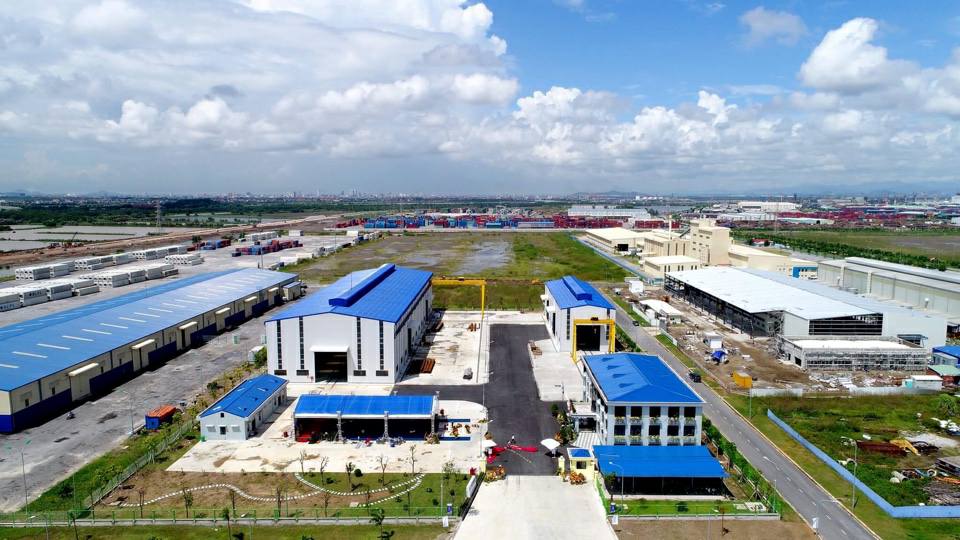According to statistics released by the Ministry of Planning and Investment (MPI), as of the end of 2018, Vietnam had established a total of 326 industrial parks (IPs), covering roughly 93,000 ha across the country. Occupancy rate of local operating IPs has hit 73 percent. The figures show industrial real estate is a lucrative market.
Most notably, the sector has recently received increasing interest from foreign investors since trade tensions between the United States and China broke out. Indeed, there has been an expected shift of global investment flows into Asian countries, including Vietnam.

Besides, Vietnam’s newly issued policies for industrial real estate, including an industrial restructuring strategy, a new legal framework on managing IPs, industrial clusters, and economic zones, have opened up new opportunities for investors and the industrial property sector.
Industrial structures are being transformed towards high value-added manufacturing industries along with the increasing participation in Industry 4.0 - based global value chains, said Nguyen Dinh Cung, director of the Central Institute for Economic Management (CIEM). As reported in a master development plan, the total land area for industrial development is expected to double by 2020.
Meanwhile, "green manufacturing” industries with the optimal use of an efficient workforce and up to date technologies will grow into a trend for new-generation industrial property tenants that want to meet the increasing demand for high-quality products.
Mr Cung pointed out these elements are triggering fresh requirements and higher technical standards for the future development of industrial real estate.
Deputy head of the MPI’s Economic Zone Management Department Tran Quoc Trung said that IPs are facing a number of limitations. He elaborated lots of IPs have yet to meet the standards and requirements needed for environmental protection. Additionally, housing and social welfare for IP workers is yet to make considerable progress.
The country has been implementing a range of new policies aimed for industrial park development. Mr Trung noted these include a number of investment incentives with regards to corporate income tax, import tax, land lease, and state support to infrastructure investment.


















